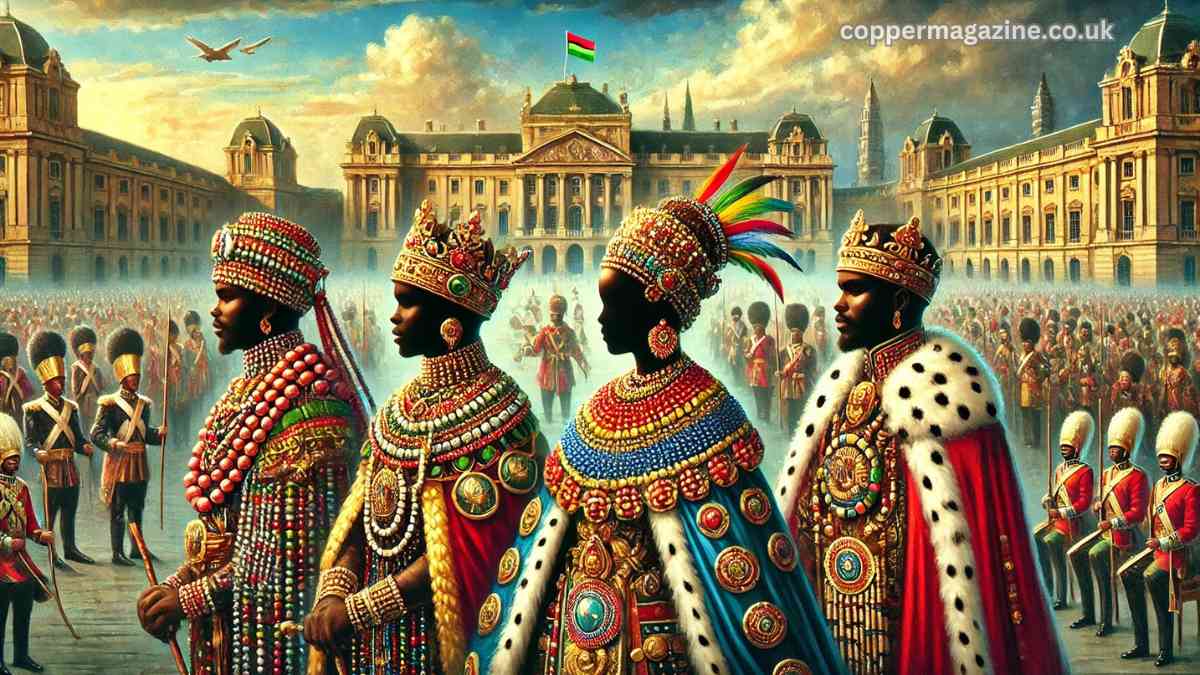African Royalty: A Legacy of Power, Culture, and Influence
Exploring the Majestic Heritage and Modern Significance of African Monarchies

The Splendor of African Royalty
African royalty stands as a testament to centuries of rich cultural traditions, political power, and social influence. From ancient kingdoms to contemporary monarchies, the legacy of African royalty showcases the resilience and adaptability of traditional leadership in a rapidly changing world.
The Roots of African Royalty
The concept of royalty in Africa dates back to ancient civilizations such as Egypt, Nubia, and the Kingdom of Axum. These early monarchies were not just political entities but also cultural and spiritual beacons, influencing art, architecture, and religion across the continent and beyond.
1. Ancient Egyptian Pharaohs
The pharaohs of Egypt were seen as divine rulers, bridging the gap between gods and humans. They established one of the world’s most advanced civilizations, known for monumental achievements like the Pyramids of Giza and the Sphinx.
2. The Kingdom of Axum
Located in present-day Ethiopia, the Kingdom of Axum was a powerful trading empire known for its advanced coinage system and monumental obelisks. Its rulers embraced Christianity, making Axum one of the earliest Christian kingdoms.
Sovereign Monarchies in Modern Africa
While many African nations have transitioned to republics, a few sovereign monarchies still thrive, blending tradition with modern governance.
1. Morocco
Morocco’s monarchy, led by King Mohammed VI, is one of the oldest in the world. It plays a central role in the nation’s political and cultural landscape, symbolizing unity and heritage.
2. Eswatini (Swaziland)
Eswatini’s King Mswati III presides over one of the few remaining absolute monarchies. The kingdom is renowned for its cultural festivals, such as the Reed Dance, which celebrate Swazi traditions.
3. Lesotho
Encircled by South Africa, Lesotho operates as a constitutional monarchy. King Letsie III serves as a ceremonial figurehead, representing the cultural heart of the Basotho people.
Traditional Kingdoms and Their Influence
In addition to sovereign monarchies, traditional kingdoms continue to wield cultural and social influence within republics across Africa.
1. The Ashanti Kingdom (Ghana)
The Ashanti Kingdom remains one of Africa’s most prominent traditional monarchies. The Asantehene (king) oversees cultural events and plays a pivotal role in uniting the Ashanti people. The Golden Stool, a sacred symbol, embodies the soul of the Ashanti nation.
2. The Zulu Kingdom (South Africa)
The Zulu monarchy, led by King Misuzulu Zulu, holds significant cultural importance. The annual Royal Reed Dance and other ceremonies highlight the Zulu people’s rich heritage and traditions.
3. The Buganda Kingdom (Uganda)
The Buganda Kingdom is one of Uganda’s most influential traditional institutions. The Kabaka (king) is a custodian of culture and an advocate for development within the kingdom.
Cultural Significance of African Royalty
African royalty is deeply intertwined with the continent’s identity. Royal courts have historically been centers of art, music, and education. They have also served as custodians of oral traditions, preserving history and cultural values for future generations.
1. Royal Regalia and Symbols
The regalia of African royalty, such as crowns, thrones, and ceremonial attire, are rich in symbolism. These artifacts often reflect the history, spirituality, and social structure of their kingdoms.
2. Role in Conflict Resolution
Traditional rulers often act as mediators in community disputes, leveraging their respected positions to foster peace and unity. This role underscores the enduring relevance of African royalty in contemporary society.
Modern Adaptations and Challenges
In the 21st century, African monarchies face the challenge of remaining relevant in a globalized world. Many have adapted by engaging in developmental initiatives and advocating for cultural preservation.
1. Economic Contributions
Some royal families have utilized their resources to support economic development. For example, the Royal Bafokeng Nation in South Africa has invested in education, healthcare, and infrastructure using proceeds from mining activities.
2. Preservation of Heritage
African monarchies continue to champion the preservation of cultural heritage. Festivals, museums, and educational programs help maintain the relevance of traditional practices in modern times.
Conclusion: The Enduring Legacy of African Royalty
Despite the challenges posed by modernity, African royalty remains a symbol of resilience, pride, and identity. Its influence extends beyond ceremonial roles, impacting social cohesion, cultural preservation, and national unity.
African royalty is not merely a relic of the past but a dynamic institution that continues to shape the continent’s present and future. By embracing its rich traditions while adapting to contemporary needs, African royalty stands as a beacon of heritage and progress.



